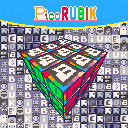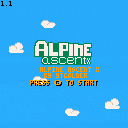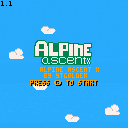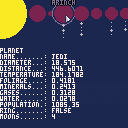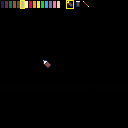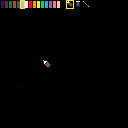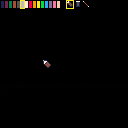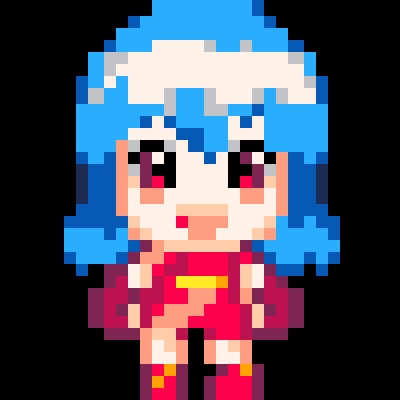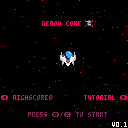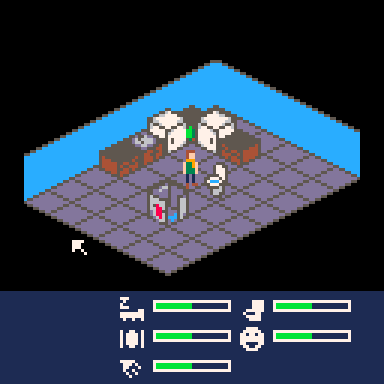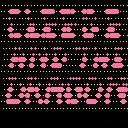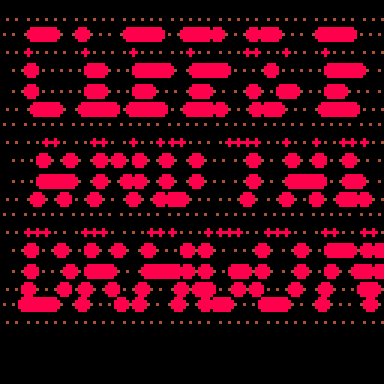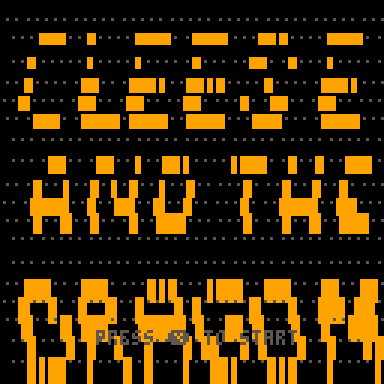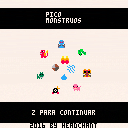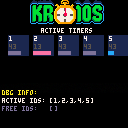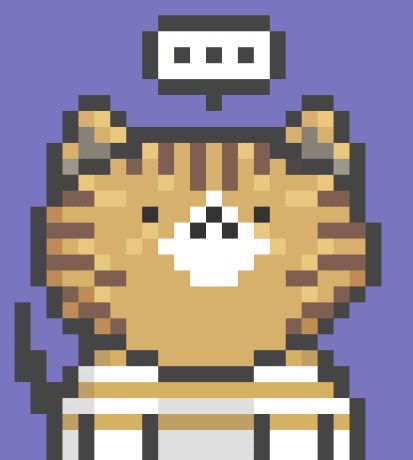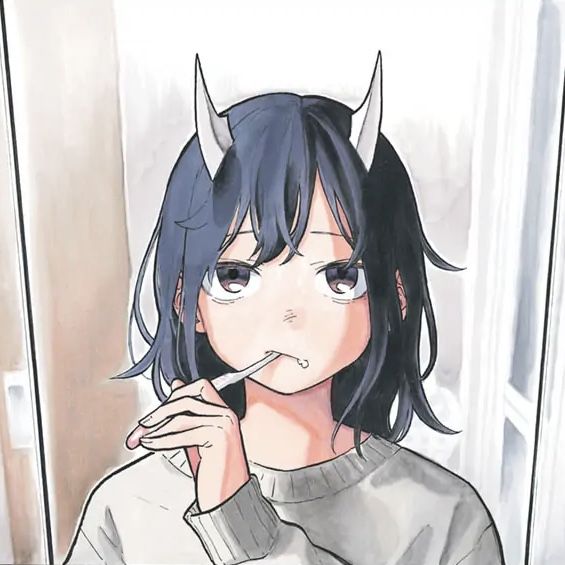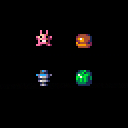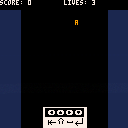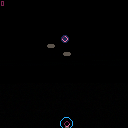1024 bytes
A pico-8 game developed for the Pico 1k Jam 2024.
Combine like-numbered tiles to reach tile 1024 before the grid gets full.
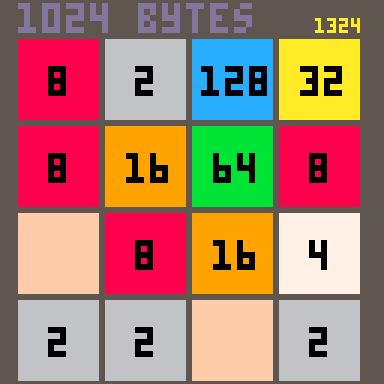
Controls
- Up/Down/Left/Right to move the tiles
Credits
Written by: Greg Gaughan
Idea from 2048 by Gabriele Cirulli
Vault 0 is a spooky text-based-choose-your-own-adventure game with 12 endings.
Explore a strange forest in search of a mysterious device.
This was my first Pico8 project and it was a BLAST! Super fun stuff.
Also, Vault 0 is a Pico8 Demake of my own game: Vault. If you want to play some different versions of this game:
- Jam Edition, 2024: https://keveatscheese.itch.io/vault
- Full Version, 2025: https://keveatscheese.itch.io/vaultsteam
Lastly, I have a discord server if you want to follow development: https://discord.com/invite/NPnaERQQSy



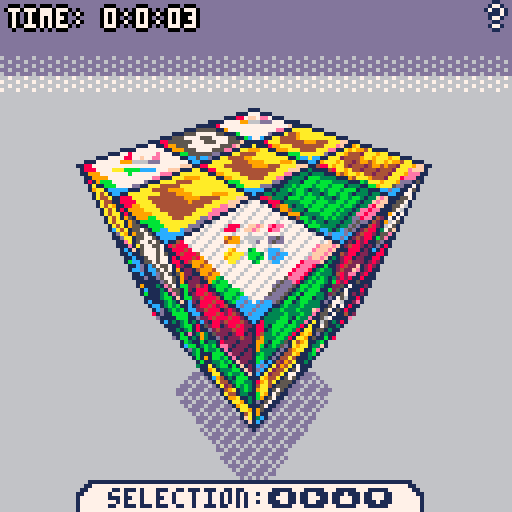
If you like this game, please consider supporting on itch !
This is my Rubik's cube implementation in PICO-8 fantasy console. Back in 2023/2024 I did a Rubik cube in OpenGL but in November of 2024 I decided to learn about PICO-8 and practice about my 3D computer graphics skills, so I came up with this type of game again hahah.
After a quick search, I founded that many people already did a Rubik's Cube, but always for 3x3x3 dimensions. The same thing applies for textures and solid colors.
In PICO RU8IK you can solve from a 1x1x1 cube up to 10x10x10 Rubik' cube. Also it's very customizable y CPU efficient
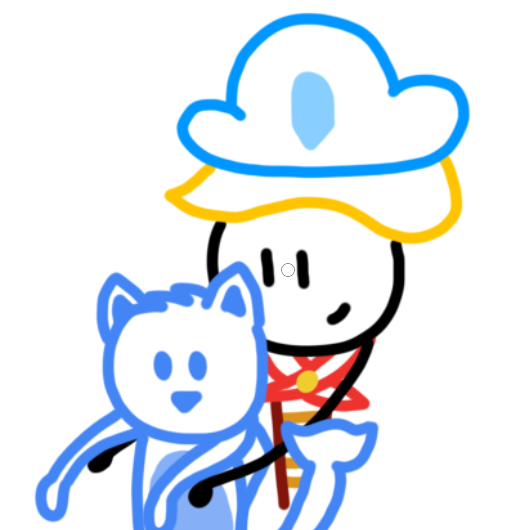

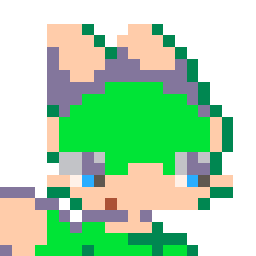

I am new to PICO-8 and coding in Lua under its environment. I was wondering, if putting in comments and keeping long names for variables and functions steals memory from the system.
What I know that usually Lua compiles the source code before executing it. All the source code is converted in tokens. But is it the same in PICO-8, I mean, is it stored in ASCII format or in tokens inside the memory?
Is it a good practice to keep short names and minimal comments?
Thank you.

(Based on https://www.lexaloffle.com/bbs/?pid=85376#p)
This version of Alpine Ascent makes the game harder
Features:
-Frame Counter
-Debug
-Best Frame saving
(My record is 5982 Frames)
Old Versions:
V1.0:
Based on this video:
https://www.youtube.com/watch?v=ZZY9YE7rZJw
Generates a procedural universe - with many suns, planets and moons.
And additional to the video, name suns and populated planets.
I used the rnd and srand-function from pico8 instead of the own function.
You can move with the cursor-keys and click on the suns for more details.
This is a WIP that has sat in my folder of shame since 2018. Because I bit off more than I can chew, I never finished it, but my goal was to have a complete RPG experience with random encounters that were arcade shooter in nature.
It's basically functional, but some doors spit you out in the wrong spot, monsters get ridiculously hard because nothing was ever balanced out, and it's generally just the result of a designer having more ideas than technical aptitude.
Run around the world, get into fights. If you capture a bug with the Captchahedron beam (they're easier to capture if they're hurt) it'll fight with you until it dies in battle.
I'm basically going to publish all my WIPs to the forum over the next week because they're not doing any good dying on my hard drive and who knows, maybe they'll inspire the next dev. -Cephie
Welcome to my first game!
I have no experience with game design, but this project has been incredibly fun! A big thank you to LazyDevs and their schmup tutorial. I am excited to try the others on their channel. Go check it out: Here's a link to the video tutorial for making a beginner schmup
Controls:
z/O: Missiles
x/X: Blaster
Arrow Keys: Movement
Tutorial:
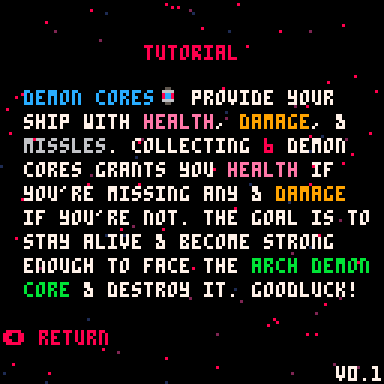
Screen Shots & Gifs:
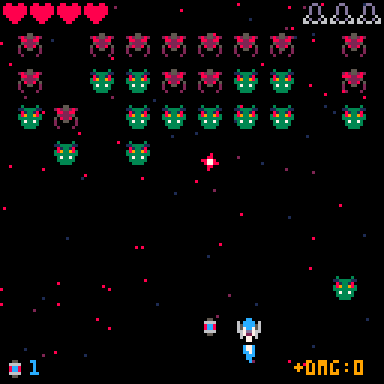
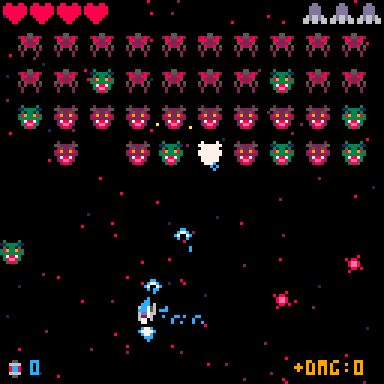
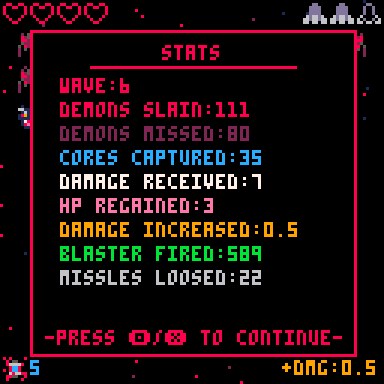
Picomonsters me ha gustado tanto que lo he traducido enterito.
La verdad es que para ser un juego de Pico - 8 es una pasada, esta muuyy currado. Mogollón de mecánicas del primer pokemon están perfectamente programadas, capturar monstruos, sistema de batallas, objetos,, misiones, etc...
Tabla de Elementos
Un picomonstruo de agua es fuerte contra uno de fuego
Los picomonstruos de fuego arrasan con todo salvo los de agua
Los de aire vencen a los de tierra
Los de tierra no valen pa nah



Kronos 1.0, Lightweight Timer Manager for PICO-8
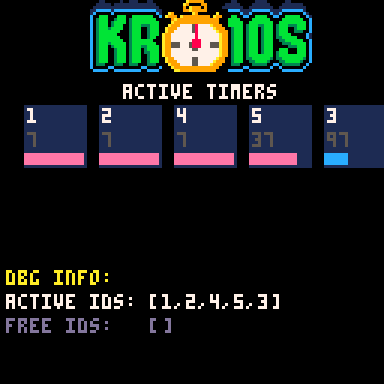
What is Kronos?
This is my first experiment with PICO-8, one of the basic element of an application, as I am used to work.
Kronos is a fast, simple timer manager. It allows you to schedule delayed or recurring actions using a simple and intuitive API.
Whether ou're creating game logic, effects, cutscenes or test harnesses, Kronos lets you easily manage multiple timers, track their status, and trigger custom functions when they expire.
How It Works.
Kronos maintains an internal list of timers, each with:
- A unique ID (either auto-assigned or manually specified).



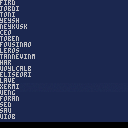
A simple name generator that should generate reasonably pronounceable names.
From a list of approximately 9,000 first names, I created a 26 x 26 table. This table contains the number of times a letter follows another letter.
The name is then generated by selecting a letter and determining the next letter based on its probability.
edit: stupid mistake in the data-creation - update. Should now generate better names. Also enforce that a vocal is on the first or second place.
Hello! I am new to Pico-8 and I just purchased an RG35XX Plus solely for Pico-8 since it runs natively. I installed muOS PIXIE on the device, downloaded the Raspberry pi files for Pico-8, put the .zip file in the ARCHIVE and installed it with Archive Manager. All of that seemed to work fine. However, I also created a separate folder under ROMS called "pico8" and in there, as instructed, I included a "dummy file" called "Splore.p8". I also put a .png cart file in there to test. When I put the microSD back into the device and go to Explore>pico8 it says "No Content Found..." Can anyone tell me what I've done wrong?
Full qwerty keyboard implemented with only direction pad and 2 buttons. There is a demo to help learn how to use it and to get practice. The bottom shows 8 current keys, button 1 will switch between the rows. The first button press will switch to another table, next press will send the key. Button 2 will bring you back to original layout.
When playing this game this is only the alphabet being scrolled only right and down arrows as well as button 1 is needed to input the letters for the demo.
right
abc
desf
button1 [switches to bottom row] right
ghsi
jk l
down
mno
pqrz
button1 [switches to bottom row] down
tuvz
wxy
(code is zlib, everything else is CC0. you can do whatever you please with this cart)
This is Sacrifix.
Connect the villages to the altars. Feed the altars. Their hunger is never ending.
It's heavily inspired by mini metro, but I think I managed to make it something quite different. It's really about managing the flow, and deciding how to connect everything together.
This is the first game I really sat down and DESIGNED. Like sat and thought through how the mechanics would make the player act, and how to make the game be interesting. A few hours of squishing my brain with draw-io got me a to a point where I had a quite complex game, but I knew quite well how I wanted it to turn out. It was really nice to have a checklist that I could just work after.






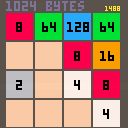
 0 comments
0 comments

